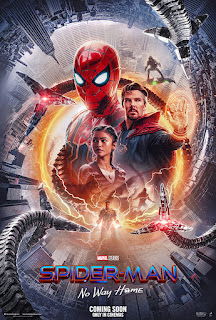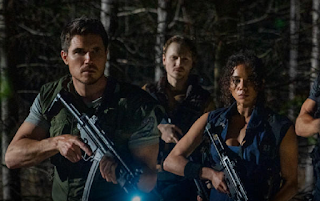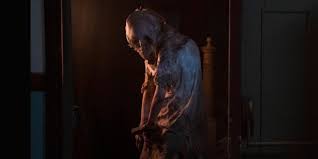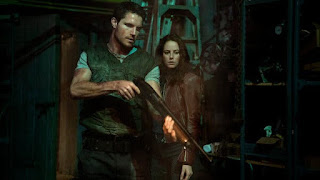Very few Hollywood remakes manage to fulfill the daunting task of not only matching their original works, but actually improving upon them along with modernizing the story for a new generation. With West Side Story, legendary director Steven Spielberg rises to the occasion and delivers a stunning remake that not only honors the work of the 1961 film which won 10 Academy Awards including Best Picture, but thrills in giving audiences a different look at the classic source material. Though such a task proved risky for everyone involved, the end result unequivocally stands as being one of the best films of 2021.
Inspired by William Shakespeare's Romeo And Juliet and the 1957 stage musical of the same name, West Side Story focuses on a young white boy (Ansel Elgort), and young Puerto Rican girl (Rachel Zegler) falling in love with their respective communities doing everything possible to keep them apart. The films plot serves as being a stunning parallel to Juliet's with a more present setting and themes revolving around racism, gentrification, and gangs. The newest version is not only masterfully directed but wonderfully acted with it carrying a tremendous amount of heart and respect towards the stories representation regarding Latino heritage. With what could've easily ended up being a pointless remake that lacked both the charm and heart of its predecessor, Spielberg's West Side Story meets expectations head on while showing that it's possible to deliver a worthy remake which can enchant as well as speak to a new era of moviegoers.
As far as performances go, the acting, singing, and directing in Story is terrific with everyone pouring their souls into their roles. Both Ansel Elgort and Rachel Zegler give fantastic performances with them boasting stellar chemistry as young star-crossed lovers. Elgort is convincing as young white youth Tony, whose out on parole for nearly killing a Puerto Rican in a fight and becomes starstruck when he notices Maria. Zegler is perfectly casted as Maria, who yearns for independence and falls equally in love with Tony. Their relationship is what ultimately gives the film its power. Other knockout performances include David Alvarez and Ariana DeBose as Maria's migrant brother Bernardo and leader of the Sharks gang, and DeBose as his fiance Anita with the latter's supporting role being stunning in the films second half. Other noteworthy additions to the cast include returning cast member Rita Moreno from the original in a special appearance as Valentina, a Puerto Rican owner of Doc's general store, along with Mike Faist as Tony's best friend and Jet leader Riff, and Brian d'Arcy James as aggressive Police Officer Krupke. As a whole, the cast is wonderfully assembled with everyone appropriately fitting their characters, as well as matching their cultural backgrounds. In terms of effort, West Side Story's cast gets an A+ with Zegler and Denise's performances being downright starmaking.
Given Spielberg as director, one expects West Side Story to be masterfully filmed with breathtaking cinematography and impressive streetwise sets and costume designs. That's exactly what audiences get here as the production feels grand in scale with the picture being gorgeously lit with vibrant camera lighting that instantly draws them into the stories time setting. The music by Leonard Bernstein and Stephen Sondheim is remarkable with Spielberg getting the entire cast to effectively convey a wide range of emotions through their song and dance routines. The choreography conducted here is a mixture of jazz, ballet, and Latin styles that all result in a kinetic display of emotion with key iconic songs like America and I Feel Pretty being amazingly conducted. Along with the films visuals, Spielberg adds a touch of sincerity to the film with letting key characters speak in their native Latin tongue minus subtitles. He does this to let the audience focus on the actors performances with them getting the overall gist of what's being said. Upon watching the film, it's apparent that Spielberg has a profound love and respect the original 1961 classic, as he gives his all in crafting a remake that honors the past while reimagining it for the present.
With a classic story like West Side Story, strong social commentary was always going to be ensured regardless of what era it's set in. Spielberg's version proves no different with the film further updating the Shakespearean romantic tragedy between two star-crossed lovers with the rivalry being between gangs rather than royal families. West Side's plot is one that addresses themes regarding identity, citizenship, and fitting in with a message which says that true love can transcend adversity along with hate only breeding violence. Despite the films 1950's New York setting, many of its themes feel relevant to today's political climate which immigrants find themselves enduring in regards to both blending in and finding their own place in America despite issues regarding turf war that's shown with the tension between second-generation American street game the Jets and the rival Puerto Rican gang the sharks. Like the films fantastic directing and choreography, West Side's writing remains strong with concepts such as breaking barriers and immigration status being at the heart of its plot.
Watching the film though, it's clear on why Spielberg chose to upgrade the original for a new generation of audiences as many of its themes carry timely relevance to today's world. With the new version, he makes a compelling case that not only was a remake necessary, but that its themes are universal enough to reflect upon people's struggles from one generation to the next. The newest West Side Story is one that's engaging to watch from start to finish and packed with remarkable talent. Whereas most remakes fail to earn their respective titles, Spielberg's does so while managing to be a fine musical/romance that's presented in a form that feels larger-than-life. Even with Spielberg giving the story a new look, he never loses sight of what made the original a beloved pop culture classic and instills it with endless amounts of energy and heart.
Final Verdict: For fans of the original 1961 West Side Story, Steven Spielberg's remake is a must see cinematic triumph.
Images courtesy of Disney/20th Century Fox Studios
























































